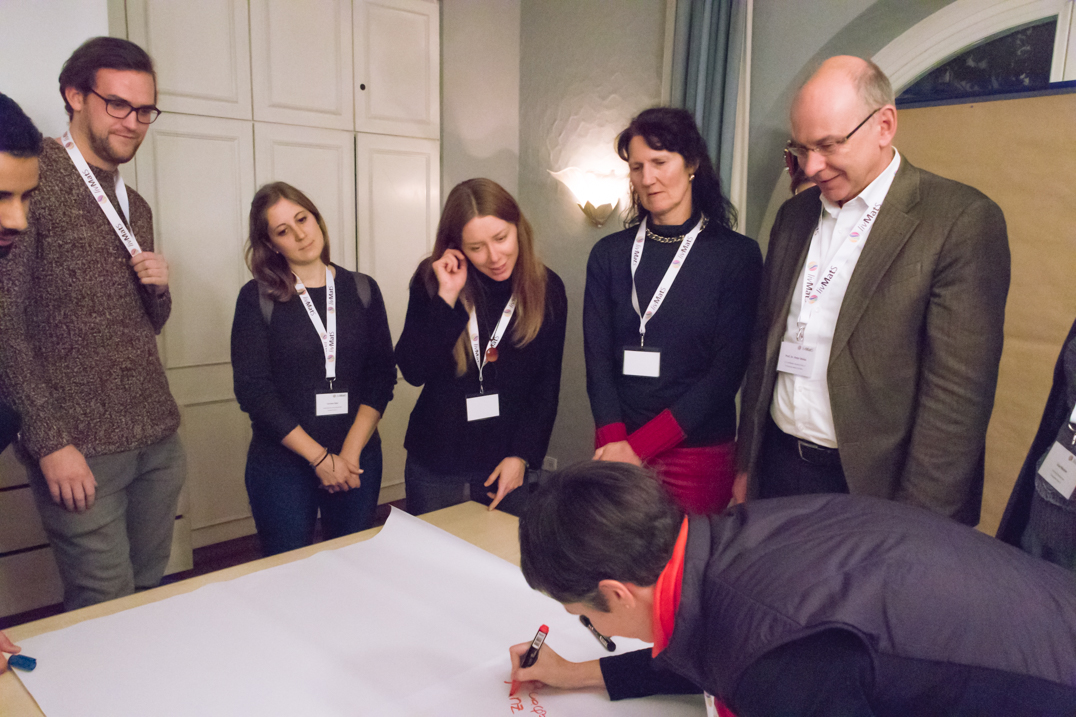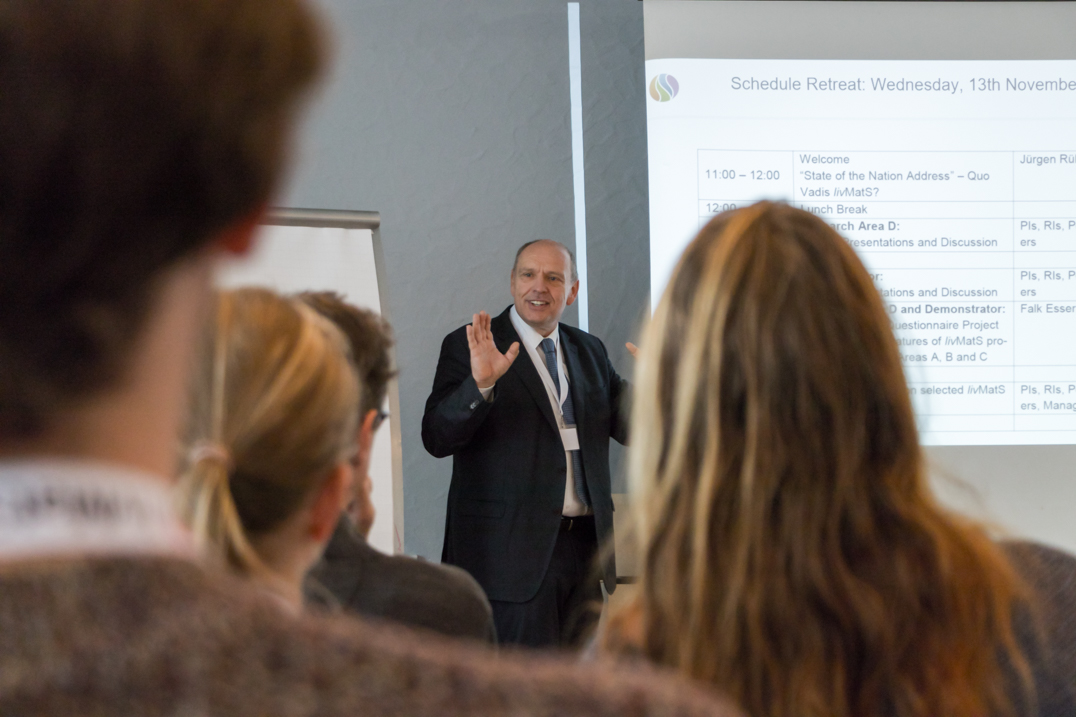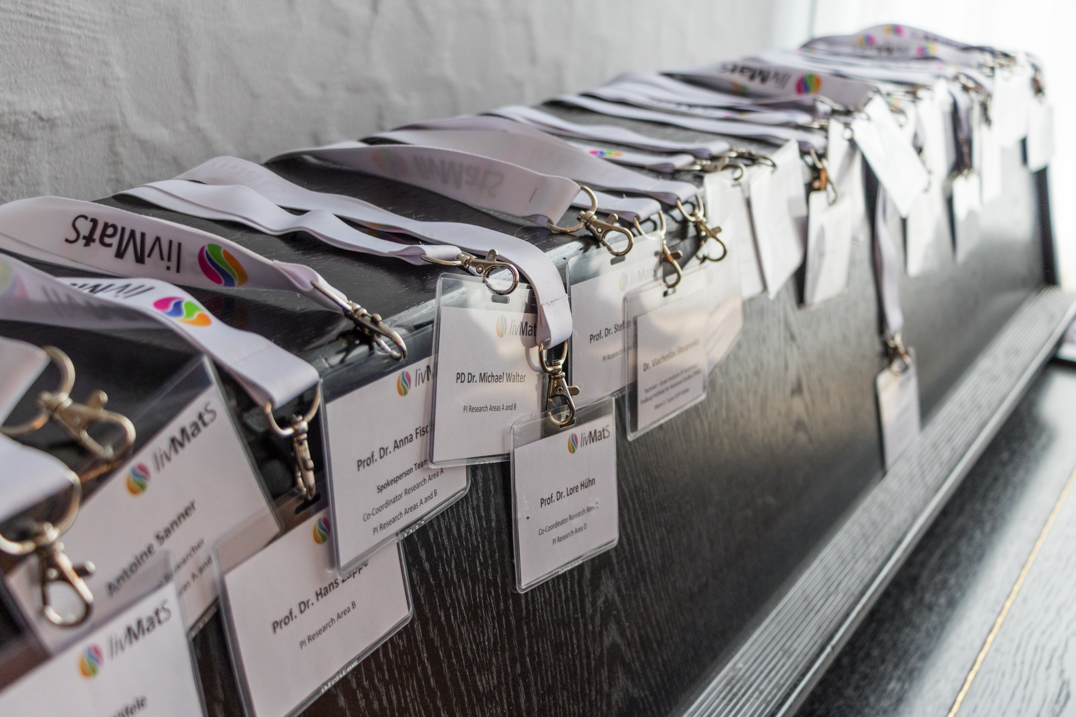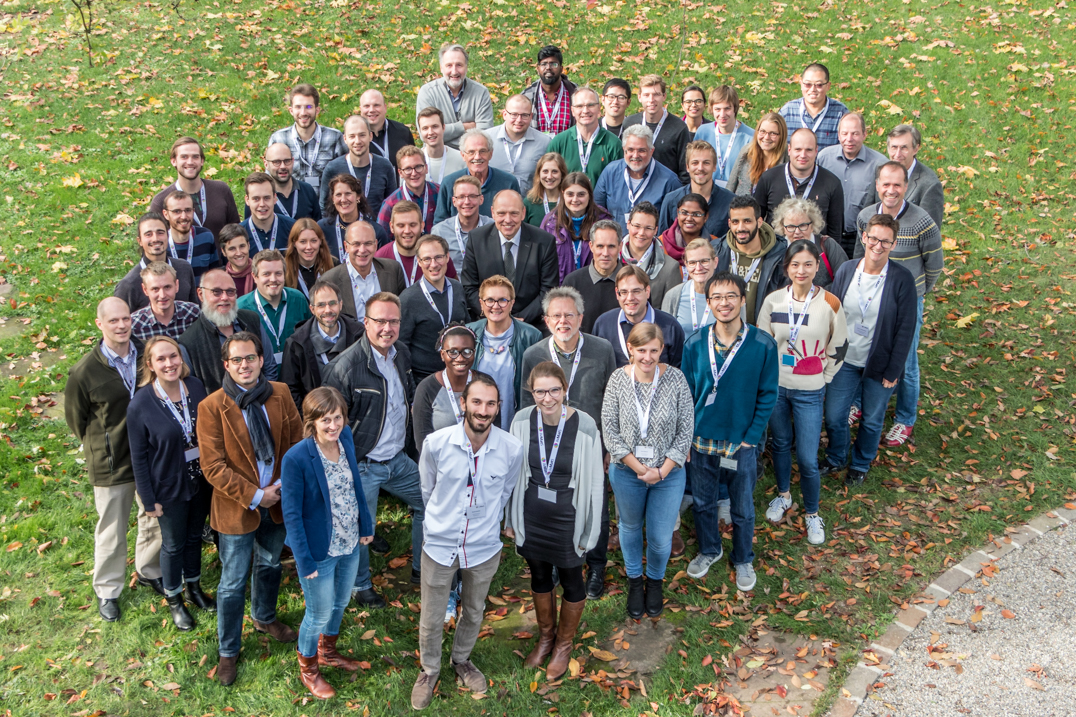News & Press
Cultivating a Culture of Collaboration
Members of the cluster livMatS meet for first scientific retreat

The members of the Cluster of Excellence Living, Adaptive and Energy-autonomous materials systems (livMatS) met for the first scientific retreat from November 13th to 15th 2019. More than 65 researchers from the fields of energy research, biomimetics, polymer sciences, sustainability research, psychology and philosophy came together to discuss their research and different possibilities of cooperation. Together, they share one common vision: To develop novel, bioinspired materials systems, which adapt autonomously to their environment and harvest clean energy from it. At the retreat, the researchers presented their projects funded by livMatS since January 2019.

The event centered around the scientific challenges which livMatS will tackle in the seven years to come. “The cluster has therefore created a promising foundation”, said Prof. Dr. Jürgen Rühe, spokesperson of livMatS, in his opening speech. Initial successes such as the Kick-off event with notable guest speakers and the procurement of satellite projects would show which impact the cluster already has after nine months.
Presentations by every research area served as a starting point for lively discussions about new approaches and issues. The talks focused on the projects of the young researchers. Members of Research Area A gave an insight into the development of new materials, which harvest energy from their environment and are able to store it. A session by the members of Research Area B highlighted design principles of materials that can regulate themselves. Talks by Research Area C discussed strategies to ensure the robustness and longevity of materials systems. Members of Research Area D discussed approaches to examine society’s acceptance of these systems and how their sustainability can be guaranteed.

Besides the scientific program, the retreat also addressed the governance structures of livMatS: Researchers elected their representatives to panels, which cover topics such as Gender and Diversity, Teaching and Training, Tech Transfer or the interests of the Young Researchers. The panels consist of permanent members and of up to five elected representatives from all career levels – they will be newly nominated every year. The task of the groups is to work out ideas and to bring these to the attention of the board of livMatS.
To strengthen the culture of exchange in livMatS, all participants of the retreat came together in a feedback session and a speaker’s corner to discuss questions relating to the cooperation in the cluster. In his concluding remarks, Rühe emphasized how important exchange among the research areas and the disciplines is for the path that livMatS will pursue: “We are already noticing a linkage on different levels in livMatS. This linkage alone will enable us to put our vision of novel materials systems into effect.”

